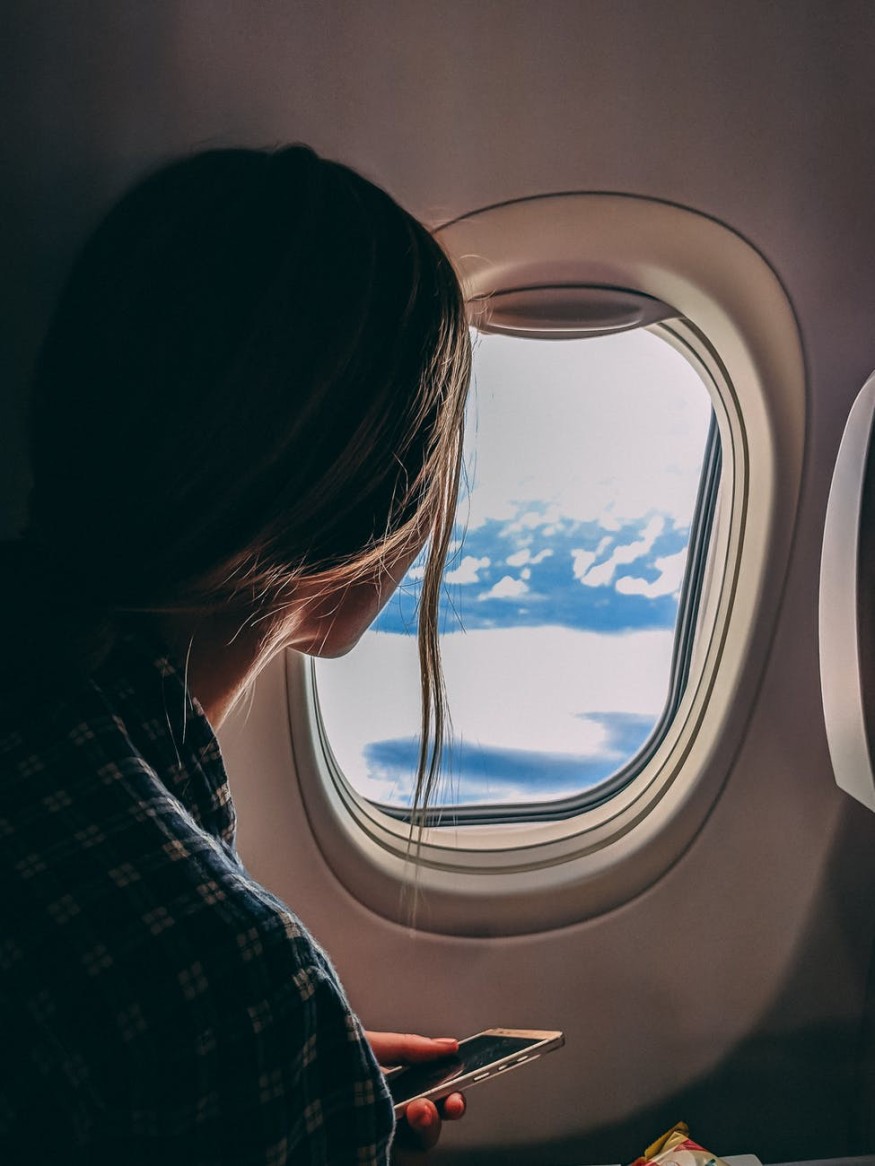What to Do if You're Sick on a Plane

Flight is a stressful situation for the body. Takeoff, landing, turbulence zones strongly affect your vestibular system. But beyond the expected possible nausea, dizziness, and pressure changes, even more serious health problems can occur. What to do if you feel sick on a plane or come sick for boarding? Let's figure it out.
Risk Zone
Flight can negatively affect various organs and systems of a person. There are certain groups of passengers who are at risk health zone during the flight.
- Blood and pressure. Due to the low pressure at altitude, the blood is more slowly oxygenated. This can affect people with cardiovascular disease, high blood pressure, and blood clotting diseases.
- Breath. Excessively humid or dry air in an aircraft, as well as low pressure, can harm your respiratory system. Passengers with sinusitis, inflammation of the respiratory tract, pneumonia, or asthma should be attentive to their state of health and, if necessary, use vasoconstrictor drops.
- Edema. If the flight is long, there is a risk of acquiring edema due to the sedentary state.
- Mental condition. Fears and phobias intensify during the flight. This can cause subsequent diseases and disorders of the body. Therefore, people with mental illness are better off minimizing flights or not flying long distances.
Who Is Contraindicated in Flying?
Depending on the airline, some seriously ill people are prohibited from flying. In some cases, the passenger may even be led away if airport staff notices his or her critical condition.
According to general medical guidelines, flying is contraindicated to:
- people who have recently undergone major surgery
- individuals who have recently experienced a stroke, heart attack, hypertensive crisis
- women pregnant at 28 weeks or more
- newborns without a doctor's presence
According to the Montreal Convention, the airline is responsible for the health of the passenger during air travel. Thus, you can address the airline for insurance coverage in the case of an accident on board.
Ticket Is Your Insurance
The air ticket is automatic insurance for the passenger on board. If you received equality during the flight, all moral and material responsibility lies with the airline. In some cases, depending on insurance, the air carrier is also responsible for the health of the passenger on board. It is important to document the incident in writing on board. This way, you have a better chance of getting your insurance payments in a short time.
However, the main document for ensuring the safety of the passenger, as well as providing quality medical care if necessary, is a boarding ticket.
Who Will Help You?
If a passenger becomes ill onboard the aircraft, the flight attendant is obliged to report this incident over the speakerphone. The flight attendant asks if there are paramedics on board. Usually, doctors, nurses, or paramedics meet on the plane. This happens in more than every second airplane.
If there is no such person on board, flight attendants provide first aid themselves.
The entire crew of the aircraft is trained to provide medical assistance. Flight attendants will help with colds, injury, or poisoning. They are also able to detect shock, stop bleeding, and perform rescue breathing or chest compressions. Flight attendants are even trained to deliver in-flight, although women who are more than 28 weeks pregnant are usually not allowed on board.
If the situation is urgent, the pilot will make an emergency landing at the nearest airport, where doctors will provide the passenger with qualified assistance.
Can You Fly with a Cold?
There are no official bans on flights with cold symptoms such as cough or runny nose. However, you should take care of your body before the flight so as not to get unwanted complications.
If you have a cold, it is best to cancel or reschedule your trip. Doctors strongly advise against flying in this condition. With a cold, a person's immunity decreases, and the mucous membrane swells strongly.
During air travel, pressure drops occur, which can lead to barotitis, nasal and ear congestion, and dizziness.
If the flight cannot be rescheduled, take care of your health in advance. Contact the doctor before the flight, buy the necessary medications at the pharmacy for the trip. Doctors recommend using vasoconstrictor drops and sanitizing wipes to reduce mucosal edema.
If your health condition has deteriorated sharply before the flight, it is better to take tickets for other dates. Many services offer great flights discounts. Thus, you will be healthy and will not lose any extra money on tickets.
Take Сare in Advance
If you know that your health condition may deteriorate during the flight, consult your doctor in advance to not get sick. Ask your doctor for written advice on what to do in an emergency. Translate these guidelines to English and several other popular languages.
Get all the medications you need. Before you start your flight, tell the flight attendant about the medication and instructions from the doctor. Such actions will help you keep your health and even life.
Subscribe to Latin Post!
Sign up for our free newsletter for the Latest coverage!











